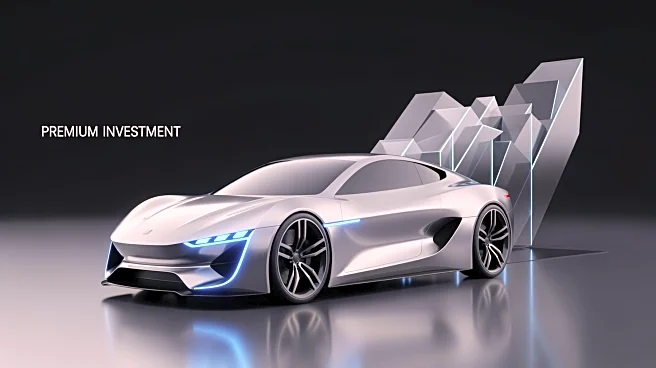What's Happening?
Hyundai Motor Group has announced plans to invest 125.2 trillion won, equivalent to $86.47 billion, in South Korea from 2026 to 2030. This investment marks a significant increase compared to the group's
previous investment of 89.1 trillion won from 2021 to 2025. The announcement underscores Hyundai's commitment to expanding its operations and enhancing its technological capabilities within South Korea. The investment is expected to focus on various sectors, including electric vehicles, autonomous driving technology, and other innovative automotive solutions.
Why It's Important?
This substantial investment by Hyundai Motor Group is poised to have a significant impact on South Korea's economy and the global automotive industry. By channeling resources into electric vehicles and autonomous technology, Hyundai aims to strengthen its position in the rapidly evolving automotive market. This move could lead to increased job creation and technological advancements within South Korea, bolstering the country's economic growth. Additionally, Hyundai's focus on innovation aligns with global trends towards sustainable and smart transportation solutions, potentially influencing industry standards and consumer preferences worldwide.
What's Next?
As Hyundai Motor Group embarks on this ambitious investment plan, stakeholders will be closely monitoring the company's progress in developing cutting-edge automotive technologies. The investment may prompt other automotive companies to increase their focus on innovation and sustainability, potentially leading to collaborations or competitive advancements in the industry. South Korean government and industry leaders are likely to support Hyundai's initiatives, recognizing the potential for economic growth and technological leadership. The success of this investment could set a precedent for future investments in the automotive sector, both domestically and internationally.
Beyond the Headlines
Hyundai's investment strategy reflects broader trends in the automotive industry, where companies are increasingly prioritizing sustainability and technological innovation. This shift may have long-term implications for global transportation infrastructure, urban planning, and environmental policies. As electric and autonomous vehicles become more prevalent, there could be significant changes in consumer behavior, regulatory frameworks, and industry dynamics. Hyundai's commitment to these areas highlights the importance of adapting to changing market demands and the potential for transformative impacts on society.












